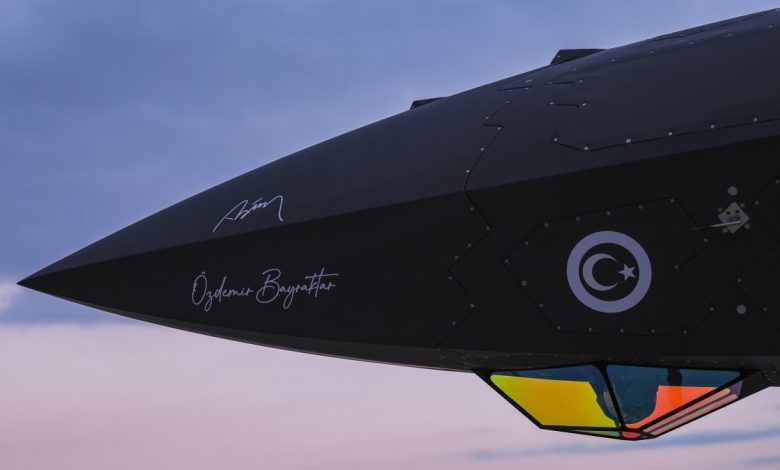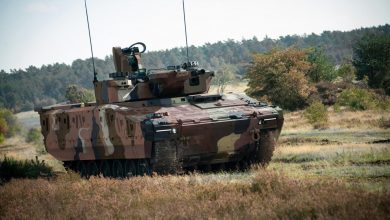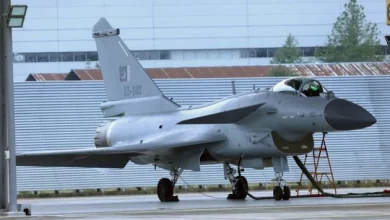Kızılelma, LBA Systems in Italy: Model for European co-op with Türkiye

Italy and Türkiye partner on drones, merging innovation with EU certification.
Leonardo CEO Roberto Cingolani’s announcement to proceed with production of the Kızılelma unmanned fighter at the Italian production plant in Grottaglie came as no surprise but certainly sparked excitement. As a spinoff of the most recent joint venture signed between Leonardo and Baykar, which led to the creation of LBA Systems, many new decisions have been implemented to transfer part of Baykar’s unmanned aerial vehicles (UAV) production to Italy and pair it with European certification and systems integration.
Indeed, LBA Systems is dedicated to the development of unmanned technologies by leveraging strong industrial synergies and encompassing the design, development, production and maintenance of unmanned aerial systems (UAS). Hence, the production processes are being relocated to various Italian districts, including Villanova d’Albenga, where the TB2 and Akinci are assembled at the Piaggio Aerospace plant; Ronchi dei Legionari, where, in addition to drone work, the TB3 naval-variant final assembly with on-site integration of sensors and weaponry is also being carried out; and to Grottaglie, where the unmanned fighters Kizilelma will be produced and assembled.
Defense co-producers
These production strategies, in addition to seamlessly integrating Turkish and Italian systems and strengthening the partnership between Rome and Ankara in the defense industry, elevate the role of both countries in the Mediterranean basin and globally. Alongside the scope of the Leonardo-Baykar Joint Venture, Italy’s role has evolved from that of a defense buyer and consumer to a co-producer in various sectors, thereby refining its expertise and competence, especially in the unmanned sector. Furthermore, at a strategic level, Italy has also become a leading supplier within the European chain, making Italian sites, system assembly and export hubs ready for payload integration. The spirit and architecture of the new joint venture, therefore, set clear industrial advantages and assets.
On the one hand, Baykar offers a line of unique and globally competitive products, from the TB2 and TB3 to the Akıncı and the more ambitious Kızılelma, which are also characterized by their rapid development capacity, a consolidated production chain and a wealth of operational feedback from a wide range of international users. On the other hand, Leonardo brings European certification pathways, expertise in composite aerostructures, mission systems integration and a long-term logistics support network within the EU market.
Undoubtedly, this is a strong factor making the difference: assembling in Italy allows for shorter delivery times, less friction related to export authorizations and aligns the production to European variants, making it compatible with European requirements. This also increases the flexibility of dual-use deployments, from training to logistical support activities to civil protection missions.
Model for EU-Türkiye relations
Going beyond the mere technical and regulatory framework, the partnership proves to be functional and significant for its strategic implications. Geopolitically, Italy engaged in strengthening an autonomous drone supply chain within the EU, offering partners a supply channel less exposed to extra-regional constraints. From a geostrategic perspective, the creation of a national network covering certification and composite materials is also highly compatible with the NATO integration spirit.
But there is more. Looking ahead, the Baykar-Leonardo partnership also falls within the scope of the European SAFE (Security Action For Europe) program, which aims to strengthen joint capabilities in defense, surveillance, supply chain resilience and interoperability by supporting urgent investments, strengthening the European defense industrial base, and promoting joint procurement through long-term loans at competitive rates. From this perspective, the Leonardo- Baykar joint venture represents a particularly interesting case because it aims to reduce industrial fragmentation through a localized supply chain within the EU and, thanks to technology transfer, local maintenance and distributed production throughout Italy, supports the logistics and resilience of supply chains.
Hence, LBA Systems could set a strategic precedent for shaping industrial relations between the EU and Türkiye in sectors where Ankara has developed competitive capabilities that are difficult to replicate internally in the short term. Therefore, the Italian-Turkish partnership can set a model to be replicated by some other EU member states for future cooperation by proving that, despite Ankara remaining outside the EU’s most sensitive defense programs, collaborating with a European company allows it to overcome political barriers without compromising European security requirements. Baykar’s acceptance of full localization of production in Europe and adaptation to Europe plays a great role in strengthening the common European industrial base.
It is a win-win solution: the Turkish side offers efficiency and operational experience while European partners offer certification, mission integration and market access. The time seems ripe to move forward with new and additional partnerships at the European level, as demonstrated by the zeal and interest expressed by several European states, including Germany, and by the finalization of the Eurofighter program. There is a growing awareness of the necessity of Türkiye’s integration into the European defense architecture; it remains to be seen how long some long-standing chancelleries will be able to maintain their denialism and ideological opposition to Ankara by invalidating any step forward.





